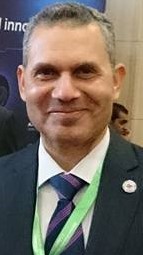ABSTRACT
Objective: To determine the effect of epilepsy on ovulatory function on one hand and the effect of ovulation induction therapy on epilepsy on the other hand.
PATIENTS AND METHODS: Ovulation was assessed over three consecutive menstrual cycles by ovulatory score based on Transvaginal sonography (TVS) and mid-luteal progesterone in day 22, in three groups of patients. Group I (22) patients with temporal lobe epilepsy (TLE), Group II (11) patients with primary generalized epilepsy (PGE), and Group III (26) healthy women. The effect of age, seizure-frequency, degree of depression and anti-epileptic drugs on the incidence of ovulation was evaluated. Also, seizure exacerbation in each phase of the menstrual cycle was assessed. The effect of clomiphene therapy in those with TLE and anovulation was evaluated.
Results: Anovulation was more frequent in group I (36.4%) than in group II (0%) and group III (7.7%). Patient age, seizure-frequency and degree of depression did not affect ovulatory function. Polytherapy with anti-epileptic drugs for temporal lobe epilepsy tends to cause anovulatory cycles more than monotherapy, but by non-significant values.
Conclusions: Temporal lobe epilepsy appears to be more frequently affected by anovulation. Although anti-epileptic drug polytherapy may increase the likelihood of anovulation, temporal lobe dysfunction appears to be the responsible cause. Those candidates get benefit from added hormonal therapy regarding either reproductive dysfunction or their epilepsy.


.jpg)